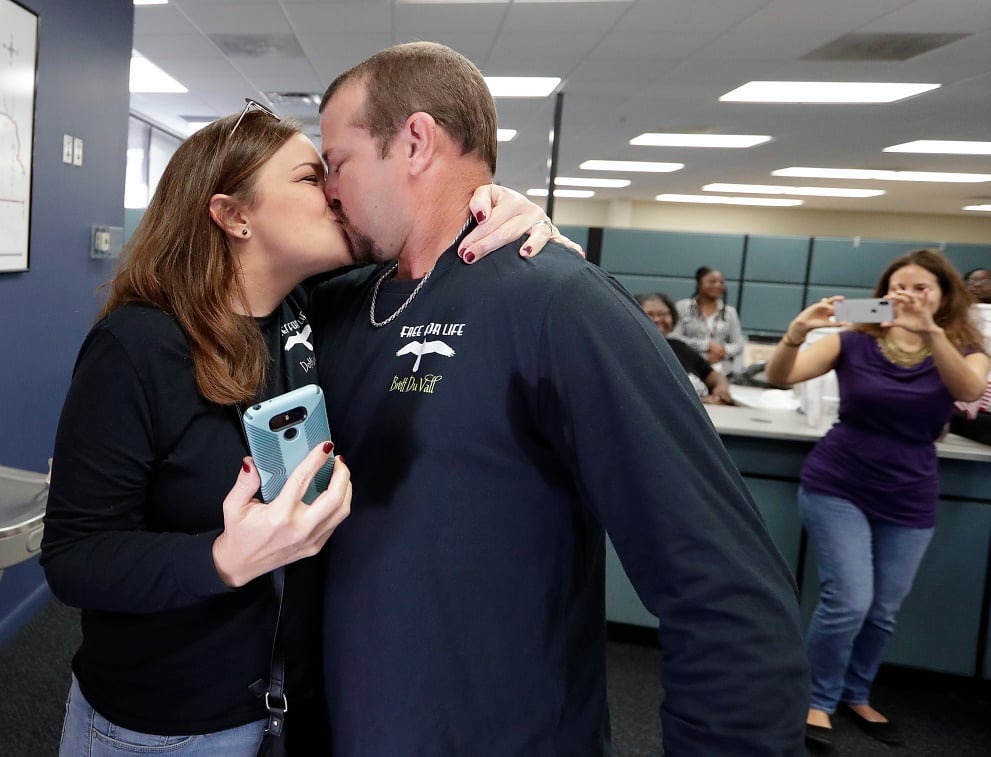ATLANTA (CN) – Florida cannot deny the right to vote for felons unable to pay restitution or fines, the 11th Circuit ruled Wednesday in a limited decision.
The 78-page opinion by the Atlanta-based appeals court upheld a Tallahassee federal judge’s injunction halting the implementation of Senate Bill 7066, which required felons to pay all restitution, fines and fees before they are eligible to vote.
Republican lawmakers passed the controversial measure last year, just months after Florida voters overwhelming approved Amendment 4, a constitutional amendment restoring voting rights to most felons “after they complete all terms of their sentence including parole or probation.” The amendment did not mention restitution or fines.
The unanimous ruling by the three-judge panel, however, only applies to the 17 plaintiffs in the case and still leaves an estimated 1.4 million Florida felons in limbo.
The underlying case, Jones v. DeSantis, is set to go to trial in April after Florida’s March primary elections. The legal battle could also head to the U.S. Supreme Court, but perhaps not in time for the November presidential election.
After hearing oral arguments three weeks ago, the 11th Circuit panel found Wednesday that the financial requirements of SB 7066 violate the 14th Amendment’s equal protection clause.
“The long and short of it is that once a state provides an avenue to ending the punishment of disenfranchisement — as the voters of Florida plainly did — it must do so consonant with the principles of equal protection and it may not erect a wealth barrier absent a justification sufficient to overcome heightened scrutiny,” the unsigned ruling states.
The communications director for Republican Governor Ron DeSantis said the state plans to appeal the injunction.
“We disagree with the ruling,” Helen Ferre said in a statement. “We are going to seek en banc review by the full court.”
Attorneys for the governor’s office have argued felons have other ways to overcome their financial obligations and vote, including petitioning a court to convert the fines to community service hours, asking a collections company or victim to forgive the debts, or seeking full clemency through the state.
But the 11th Circuit took issue with those arguments.
“No one owed money by a felon – whether a collection company or victim – is required to forgive the debt,” the judges wrote. “No court is required to convert [financial obligations] to community service hours. And no member of the clemency board is required to grant rights restoration. We can hardly call pursuing a discretionary grant that at best will take years to receive, if received at all, a suitable alternative.”
In a study submitted to the court, Daniel Smith, a University of Florida political science professor, found nearly 80% of felons have outstanding debts that could prevent them from voting.
Prior to the passage of Amendment 4, Florida had the highest number of disenfranchised felons in the country, according to a 2016 report by the Sentencing Project. The Sunshine State was one of only three states that banned ex-convicts from voting for life.
In the first three months after the amendment took effect in January 2019, more than 2,000 formerly incarcerated Floridians registered to vote. Advocates say thousands more have registered since.
County elections supervisors have expressed frustration by the lack of direction from the state. Florida does not have a statewide database for elections officials to check if felons paid all their fines and restitution. Some county elections supervisors have urged felons to register, even if they are unsure whether they owe anything.
The American Civil Liberties Union, Campaign Legal Center and other criminal justice groups that represented the plaintiffs applauded the ruling.
“We are pleased that the court’s decision today affirms our position that lack of wealth cannot be a barrier to one’s ability to vote,” said Paul Smith, vice president at Campaign Legal Center. “Two courts have now recognized that Florida can’t deny people the right to vote based on the ability of citizens to pay.”
Subscribe to Closing Arguments
Sign up for new weekly newsletter Closing Arguments to get the latest about ongoing trials, major litigation and hot cases and rulings in courthouses around the U.S. and the world.









